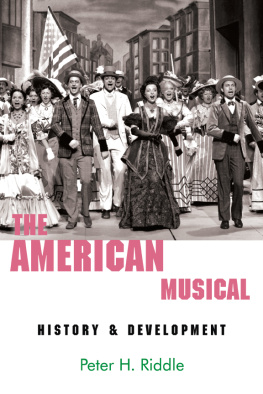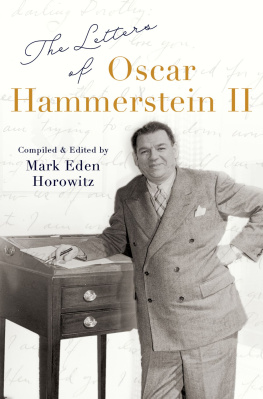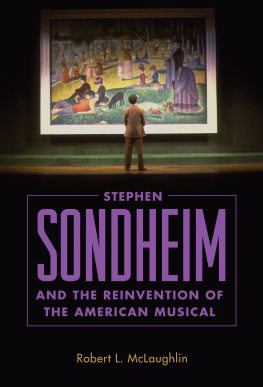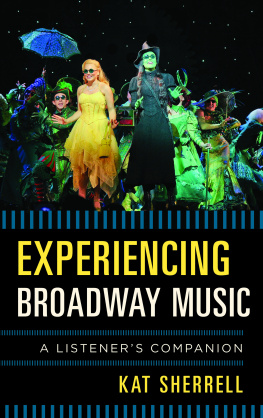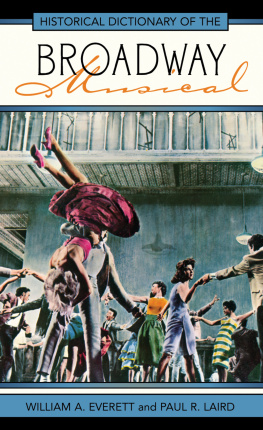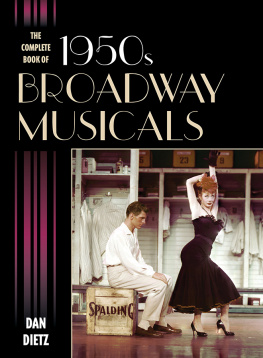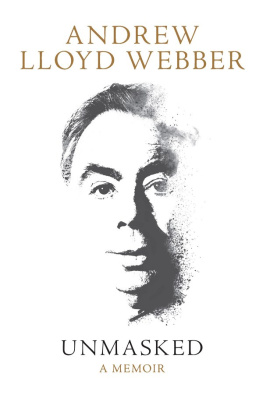
THE
AMERICAN MUSICAL


THE
AMERICAN MUSICAL
History & Development

Peter H. Riddle, Ph.D.
Edited by
Gay Riddle

L IBRARY AND A RCHIVES C ANADA C ATALOGUING IN P UBLICATION
Riddle, Peter H.
The American musical : history and development / Peter H. Riddle. -- 2nd ed. Includes bibliographical references and index.
ISBN 978-0-88962-925-7
1. Musicals--United States--History and criticism. I. Title.
ML1711.R463 2010 782.140973 C2010-906388-0
No part of this book may be reproduced or transmitted in any form, by any means, electronic or mechanical, including photocopying and recording, information storage and retrieval systems, without permission in writing from the publisher, except by a reviewer who may quote brief passages in a review.
Pubished by Mosaic Press, Oakville, Ontario, Canada, 2013.
Distributed in the United States by Bookmasters (www.bookmasters.com).
Distributed in the U.K. by Gazelle Book Services (http://www.gazellebookservices.co.uk/).
MOSAIC PRESS, Publishers
Copyright 2003, Peter H. Riddle
2nd printing 2013, Peter H. Riddle
Book layout by Robyn Rucchin King and Eric Normann
Cover design by Keith Daniel and Eric Normann
Cover photo by Jef Kratochvil, licensed under the Creative Commons
Printed and Bound in Canada.
ISBN Paperback 978-0-88962-925-7
ePub 978-0-88962-968-4
ePDF 978-1-77161-010-0
We acknowledge the financial support of the Ontario Media Development Corporation (OMDC).
M OSAIC P RESS
1252 Speers Road, Units 1 & 2
Oakville, Ontario L6L 5N9
phone: (905) 825-2130
info@mosaic-press.com
www.mosaic-press.com
Foreword
The chronicle of musical theatre is immense and astoundingly diverse, even when limited to the modern era, which dates from the Princess Theatre musicals of Jerome Kern early in the 20th century. I have not attempted to provide a comprehensive history of the medium, but rather to comment upon aspects of its development and high points in its repertoire that represent important trends as I see them. Critics may accuse me of leaving out their favourites, and I am no doubt guilty of this. My choices have simply been guided by my own taste, for which I take full responsibility.
I dedicate this book to the students and faculty of the School of Music of Acadia University, past, present and future, and particularly to those who are, at the time of publication, involved in our fledgling music theatre program. May your efforts continue to bear fruit, and your careers to prosper.
About The Author
Peter H. Riddle joined the faculty of the School of Music at Acadia University (Wolfville, Nova Scotia) in 1969 after eight years of public school teaching in the United States and Canada. He initiated that institutions instrumental music education program and currently teaches theory and history, in addition to courses in music theatre.
A prolific author, Riddle has published four novels, eleven books on the history and technology of antique model trains, and numerous articles in music and hobby periodicals. His wife, Gay, edits all of his non-fiction works.
Contents
INTRODUCTION
The primary purpose inherent in the vast majority of dramatic works is to recount stories of characters and their lives, whether real or imaginary, ordinary or supernatural. Above all, good drama most often deals with subjects to which the audience can relate, either those events and situations they may already have experienced, or those which they can envision themselves as encountering.
This element of empathy accounts in part for the impact of such realistic works as Arthur Millers Death of a Salesman , but even fantasy can be explained in these terms. The exploits of a Sir Lancelot or an Indiana Jones may seem far-fetched and implausible, yet if the audience members can imagine themselves assuming those same roles, however improbably, the performance succeeds. Even a Merlin (or a Harry Potter) is an essentially credible character, if not in reality, then in conceivable imagination.
In this context, the longstanding historical bond between drama and music would seem to be almost absurdly artificial. The insertion or imposition of songs and dances and overtures should be rejected as impossibly foreign to dramatic presentations, because music is an adjunct to everyday life, and not an element inherent in it.
Even in the blush of first love, for example, one does not suddenly burst into song in broad daylight, impelled by nothing more than being in the vicinity of the object of ones affections. People dont do such things in real life, but on the stage we not only accept it, we applaud it. Why?
The answer lies in the capacity for drama to involve the audience, on a deep and emotional level, in the story, characters and sensibilities portrayed on stage. While conventional inhibitions would prevent our singing in public to express ourselves, we might want to do so. The character in the play is therefore doing it for us.
To cite another example, how does the average person react to sudden violence, such as a shooting where the victim lies dying in the street? By attempting to administer first aid? By calling 911? Perhaps, but one is just as likely to scream for help or to run in terror. The average person would not, however, gather the victim in close and sing tenderly of love At the very least, we would try to get help instead.
Powerful emotions sometimes require the suspension of disbelief, and staged drama does not always demand our acceptance of the credibility of a characters actions. We might suspect that we would not always react wisely or effectively in a given situation, such as a shooting or a tragic accident. Whatever the reality, however, we would prefer to perform heroically or nobly, or especially lovingly. A tender song at such a moment might be totally inappropriate, but we would wish it to be otherwise.
And so we accept the inclusion (some would say intrusion) of music as an accessory to some types of dramatic presentation, however improbable that would be in the everyday world. But this does not explain the development of genres in which the music seems not to be appended to the drama, but vice versa. For example, the excesses of operatic performance in the Baroque period of musical history were such as to obscure the content of the plot, and even to render it superfluous, but this did not diminish the popularity of the form.
To the annoyance of many, our lives are attended by music on a daily basis. Business establishments pipe it in, telephones subject us to other peoples taste while we are on hold, and inconsiderate drivers broadcast it at unbearable decibel levels as they traverse the streets. Radio and television are everywhere. But this tangential music is not integrated into our lives. It surrounds us, but does not necessarily apply specifically to our activities at any given time. It may accompany us, but it has nothing really to do with us, other than to offer entertainment if we are in the appropriate mood. Were we able to choose our own background music, to have it spring forth from lush strings or inspirational brass to suit our daily deeds, our lives would likely be far more romantic, splendid and opulent.
Next page
